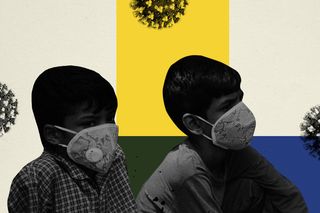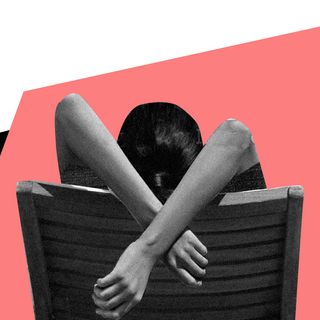
Mumbai Records One of the Biggest Clusters of Children With Covid19
The finding adds to concerns about the lack of guidelines or approved vaccines for treating or safeguarding children against Covid19.

18 children from a children’s home in Mankhurd, Mumbai, tested positive for Covid19 and are receiving treatment for the same at the Videocon Athiti Covid Care Centre in Vashi, Navi Mumbai. The children are currently stable, according to Brihanmumbai Municipal Corporation (BMC) officials.
All 102 residents of the home were tested after three children showed symptoms of high fever and tested positive for Covid19. 15 additional children were found to be positive, making the group among the largest clusters of Covid19 positive children in India. The youngest of the group is 9 years old; of the rest, four are between 12-13, five are 14-15, and six are 16-17 years old.
Officials told The Indian Express that an additional screening will be done at the childcare facility after five days.
On Friday, another large cluster of children tested positive at the St. Joseph Orphanage and School in Byculla, Mumbai. 16 children, four below the age of 12, tested positive and were admitted to pediatric wards and care centers as precautionary measures. A medical officer told The Indian Express that the samples of all patients were sent for genome sequencing to determine whether the Delta variant caused the spread.
The incidences of infection come against the backdrop of Covid19 cases soaring among children worldwide. Hundreds of children — many below the age of 5 — died of Covid19 in Indonesia last month, and numerous children in the United States saw severe infections requiring ICU ward admissions in what is now being considered the fourth wave in the country.
Health experts globally have debated the predicted prevalence and severity of Covid19 in children but increasingly, are expressing concern over the long-term effects in those children who have contracted Covid19. The Delta variant is particularly concerning for children on two fronts: Long Covid19, which could impact learning and neurological development, and Multi-System Inflammatory Syndrome-in Children (MIS-C), a serious post-covid complication in children that has emerged as a new concern.
“As we learn more and more about Long Covid, we know that it may certainly lead to chronic fatigue and inability for children and adolescents to focus properly. There might be neurological, behavioral issues and cardiac issues,” Texas Children’s Hospital Interim Pediatrician-in-Chief Dr. James Versalovic told Reuters.
As for MIS-C, India has begun to witness some worrying trends already. According to Kerala’s health ministry data, 4 children have died of MIS-C and 300 have been infected in the last five months. Moreover, 10% of the total infections in the state comprised children, of whom most MIS-C cases were seen among children under the age of 15.
Even among asymptomatic child patients of Covid19, chances of developing MIS-C in the weeks to follow are not insignificant. The condition, characterized by fever, stomach pain, rashes, and others, has been called a “ticking time bomb” for children because it progresses into a life-threatening disease and multi-organ failure if not treated properly.
Related on The Swaddle:
‘Long Covid’ Patients In India Are Struggling, But Their Plight Remains Unseen
The debate over a possible third wave of Covid19 in India now stands at the consensus that the daily case peak is not likely to be as high as that of the second wave, but children are a demographic of concern, given that they remain vulnerable on account of not being eligible for vaccines yet.
Further, immunocompromised or comorbid children with the infections comprised 60-70% of children’s hospitalizations for Covid19 in India. This adds to general concerns about India’s preparedness to handle an increase in Covid19 cases in children.
Irrespective of the consensus on how severely children are likely to be affected, there is a general agreement that more efforts are needed to ramp up pediatric facilities in preparation. In line with predictions of the third wave occurring around October, an expert panel from the National Institute of Disaster Management (NIDM) noted that, at present, pediatric facilities like doctors, ventilators, ambulances, and so on are “nowhere close” to what would be required should a high number of children get infected during the third wave.
Meanwhile, the government approved the Zydus Cadila vaccine for emergency use and will be rolled out in October, by which time guidelines for their administration in children aged 12-17 are expected. Phase 2 and 3 clinical trials for the Covovax vaccine for children began this Sunday. But experts have noted that with the reopening of schools and relaxation of social distancing norms around adults, building a “shield” around children by vaccinating their parents must be prioritized.
Rohitha Naraharisetty is a Senior Associate Editor at The Swaddle. She writes about the intersection of gender, caste, social movements, and pop culture. She can be found on Instagram at @rohitha_97 or on Twitter at @romimacaronii.
Related


Redefining ‘Leisure’ As a Necessity And Not a Waste Can Lower Stress At Work
